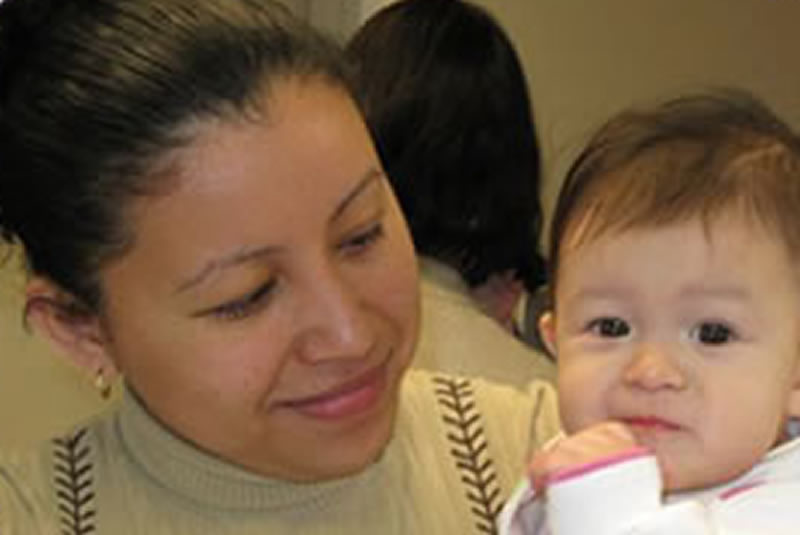eLearning, Presentations, and Webinars
eLearning
Cultural Humility Part One: Supporting Immigrant Families, A Culturally Humble Approach (external website)
Institute for the Advancement of Family Support Professionals
This module describes the concept of cultural humility, a lifelong process of reflection and learning from every person, family and situation one encounters, as an alternative to trying to become "culturally competent." The culturally humble approach is then applied to the family support professional scope of practice supporting immigrant families in acculturating to the United States and in preserving and maintaining their home culture. The module includes information about the impact of immigration laws on undocumented immigrants and their families.
Cultural Humility Part Two: Supporting Dual Language Learners (external website)
Institute for the Advancement of Family Support Professionals
This module applies the concept of cultural humility, a lifelong process of self-reflection and learning, to home visiting work with culturally and linguistically diverse families. Participants will learn strategies for helping linguistically diverse families overcome language barriers and receive linguistically and culturally appropriate communications, materials and access to resources. The module describes key practices for supporting children who are learning two languages and ways to support the preservation of home languages and dialects of children and families.
Webinars
Beyond Cultural Competence: How to Effectively Work with ALL Families Part 1, Part 2
VA’s Integrated Training Collaborative | Partnership for People with Disabilities
Presented by Barbara Grant, MA
As early interventionists, we work with many diverse families and caregivers. Cultural competence - what does that really mean, and where does coaching fit? In Part 1 of this series, we discussed what cultural humility is, how to define a person's culture, and gave you ideas on how to reflect in order to best serve all families. In Part 2, we dig deeper into dimensions of cultural humility, implicit biases, and strategies you can use immediately. Click the link above to visit the 2017 Talks on Tuesdays Archive and scroll down until you find the webinars.
Cultural Goggles: “Everybody’s Got ‘Em”
VA’s Integrated Training Collaborative | Partnership for People with Disabilities
Presented by Cecily Rodriguez
This webinar provided an overview of cultural competence and information and statistics about cultural groups in VA. Effective communication was discussed as well as how to apply the knowledge learned in everyday practice. Click the link above to visit the 2014 Talks on Tuesdays Archive and scroll down until you find the webinar.
Evaluation & Assessment for Children in Bilingual Environments (external website)
Texas Early Childhood Intervention
This free 3-part webinar series features 1-hour recordings on assessment of bilingual children and addresses cultural considerations and differences vs. disorders in speech and language development.
Increasing SLPs' Cultural Competence
VA’s Integrated Training Collaborative | Partnership for People with Disabilities
Presented by Lisa Santra MA CCC-SLP
In an ever expanding culturally diverse world, increasing our cultural competence is even more important now. Learn the evidence behind the why, what and how we can reduce our biases and strengthen cultural competence through interactive learning by listening to a podcast together, sharing experiences, and reviewing ASHA articles. Although this talk is geared towards SLPs, all are WELCOME as we serve as primary service providers in Early Intervention! Click the link above to visit the 2020 Talks on Tuesdays Archive and scroll down until you find the webinars.
What Early Interventionists Need to Know about Bilingual Language Development in Toddlers Part 1, Part 2
VA’s Integrated Training Collaborative | Partnership for People with Disabilities
Presented by Cynthia Core, PhD, CCC-SLP
Ever wondered: How do I know if a bilingual child actually has a language delay? Watch this series of two Talks on Tuesdays webinars to help answer this question. In Part 1, we review research findings related to typical bilingual language development in toddlers. We also discuss how to identify language-related impairments in bilingual children and strategies you can share with parents about how to support their children's language development. Part 2 goes deeper into issues faced by bilingual families and early interventionists working with bilingual families. We discuss current research on bilingual children with developmental disabilities such as hearing loss, autism, and Down syndrome, and how they can successfully learn two languages. We talk about how to identify atypical development in bilingual children, when bilingual children "catch up," and how to support parents in using language strategies with their children. Click the link above to visit the 2018 Talks on Tuesdays Archive and scroll down until you find the webinars.






 Culturally Responsive Practices
Culturally Responsive Practices